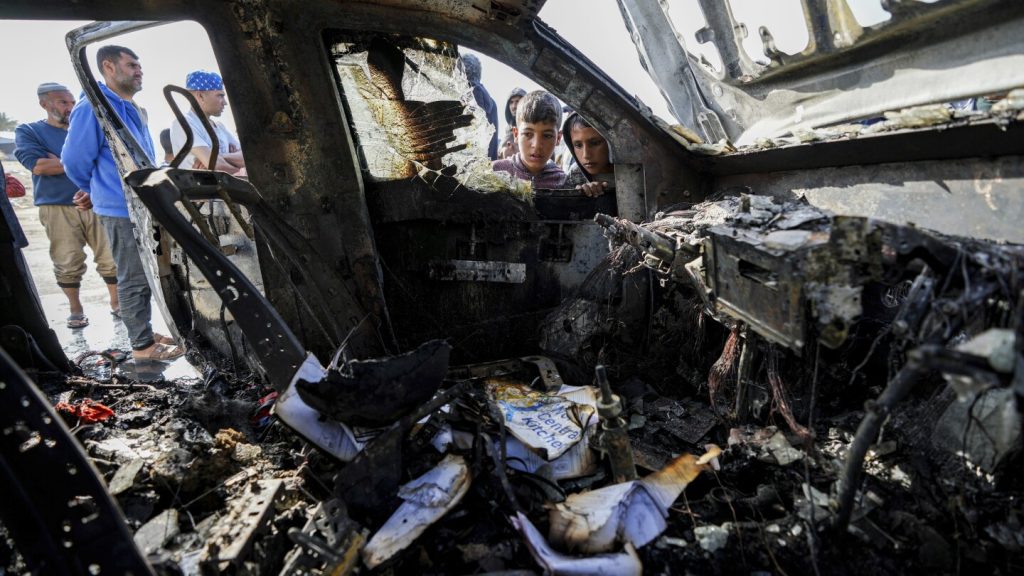European leaders are expressing unprecedented criticism of Israel following the Israeli military’s killing of seven aid workers in Gaza. The attack on the World Central Kitchen convoy has led to strong reactions from allies like France and the UK, with some countries halting arms sales to Israel. The incident has heightened the dilemma for European politicians caught between supporting an ally and facing public pressure to stop a war they have little control over. The tragedy has accelerated existing unease in Europe about the conflict, making it a more public issue.
The killing of the aid workers has stirred international outrage, with leaders from countries like Canada and Australia condemning the attack as unacceptable. Israel has called the incident a tragic mistake and has taken disciplinary action against military personnel involved. Beyond Europe, global leaders have spoken out against the attack, highlighting the gravity of the situation. While Israel’s right to defend itself has been acknowledged, there is growing concern about the humanitarian situation in Gaza and the high civilian casualty toll.
Western outrage over the deaths of foreign aid workers has resulted in calls for European governments to suspend arms sales to Israel. The United Nations’ Human Rights Council passed a resolution urging a halt to arms sales, with Spain and Canada taking steps to stop future shipments. In the UK, calls have been made to follow the International Court of Justice’s conclusion of a “plausible risk of genocide” in Gaza and cease arms sales. While suspending arms sales would be a significant political statement, it may not have a significant impact on the conflict.
The United States, as a major influence on Israel, has also started to toughen its stance towards the country. President Joe Biden has linked continued U.S. support for the war to Israel taking more action to protect civilians and aid workers. Israel has responded by opening new aid routes and increasing supplies to Gaza. European countries, such as Germany, have called for Israel to implement these changes quickly. A decision by European nations to halt arms supplies unless Israel complies with international law could increase pressure on the United States to take similar action. The question remains how much leverage President Biden is willing to exert on Prime Minister Netanyahu to help end the conflict.
The conflicting dynamics of supporting an ally and responding to humanitarian concerns continue to shape European responses to the Israel-Gaza conflict. The tragic incident involving the aid workers has amplified the calls for a cease-fire and highlighted the need to address the humanitarian crisis in Gaza. As European leaders navigate this delicate balance, they face mounting pressure to take decisive action, such as suspending arms sales, to help bring an end to the violence and protect civilians in the region. The international community’s response to the Israel-Gaza conflict will be crucial in determining the path forward and ensuring a sustainable resolution to the ongoing crisis.


